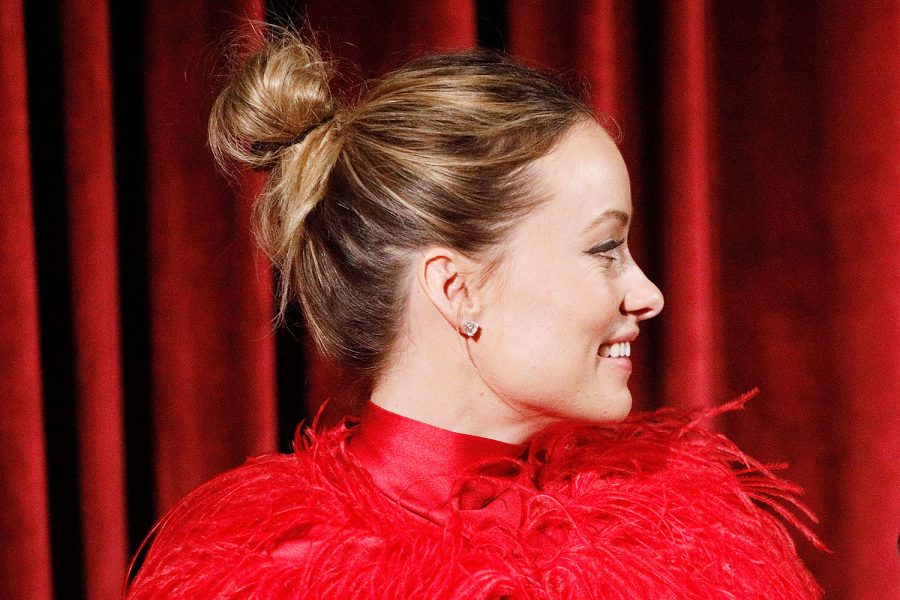Opinion: Female directors are best suited for female-empowerment films
Brittany Runs A Marathon is an example of a male director attempting and failing to articulate the complexities of the female mind.
NEW YORK, NY – MAY 21: Actor, director and producer Olivia Wilde on stage during The Academy of Motion Picture Arts and Sciences official Academy screening of "Booksmart" at the MoMA, Celeste Bartos Theater on May 21, 2019 in New York City. (Photo by Lars Niki/Getty Images for The Academy Of Motion Picture Arts & Sciences/TNS)
September 18, 2019
As I sat down in the dead center of the theater, approximately 30 minutes before showtime, I had no big expectations for Brittany Runs A Marathon. I intended to leave somewhat empowered by the narrative that was so beautifully articulated in the trailer.
The inspiring true story of a woman who takes control of her life and defies society had me pumped up. Upon further reflection, many of the film’s issues come from the director, Paul Downs Colaizzo, a man who decided he was capable of making a film about celebrating women.
Between the horrific female friendships, constant focus on the leading lady’s weight, and the failed attempt to convey a complex woman by spreading her too thin — leaving a hollow and shallow shell — I threw my popcorn away, questioning the fate of cinematic feminism.
We absolutely need men to be a part of the conversation, but no matter how empathetic or cultured, they can never truly understand the life and mind of a woman, and vice versa.
This is apparent with a classic cliché of the female protagonist staring in deep thought in the presence of makeup only to transition into the next scene where she looks stunning in her pink lip. Then naturally, due to her “elevated” and slimmer appearance, the man on the subway train finally holds the door open for her.
As someone who rocks various shades of lipstick, I truly understand the internal power of makeup. But the film’s portrayal of makeup is not the only problem. The problem is how this intelligent and hilarious character is portrayed to feel as though she can’t own a red lip before shedding the pounds.
The trouble with this is how the woman just stands in agitated silence as men make implicit, sexist comments about her because how can a woman of a certain size be confident or have self-respect, right? Wrong.
On the surface, Colaizzo does a great job of making sure this film is different. Utilizing the incredibly interesting side characters — whose only purpose is to further the main storyline — their dialogue consists of things like, “we had a long talk about gender stereotypes,” or “changing your life was never about your weight.” Which are all explicitly fine and dandy, but as a woman, are not enough to smooth over just how much the story itself misses the mark.
In fact, the scene that made me most upset was when the main character, who is now significantly more in shape, verbally attacks another woman because she is happy, yet overweight. Although a climactic scene demonstrating the internal dilemma of the main character, it is one of many instances in which the character’s intricacy comes across as bitter and hostile, a common theme overlooked by the director.
Nevertheless, there are exceptional examples of female empowerment in contemporary cinema.
This is demonstrated in 2017’s Wonder Woman, the highest-grossing superhero origin film of all time. Directed by a woman, Patty Jenkins, it serves as an example of independent women succeeding on their own terms. Another example is the summer film Booksmart. The film immediately absorbs its audience into a world in which the struggles of the female life are on unapologetic display. It stars a predominantly female cast and storyline by director Olivia Wilde, but it is never consumed by superficial conversations revolving around our weight, makeup, or cute boys.
Having women lead the production on these films isn’t necessarily what makes them better than Brittany Runs a Marathon, but it’s definitely a heavy contributor.
It’s not that men are bad directors, or even bad feminists. But when it comes to telling the story of a woman, with all of our unique layers and dimensions, women should be at the center of the narrative. Otherwise, we are left with “empowering” films that merely perpetuate a false idea of an entire population due to implicit biases and stereotypes.
Columns reflect the opinions of the authors and are not necessarily those of the Editorial Board, The Daily Iowan, or other organizations in which the author may be involved.




















